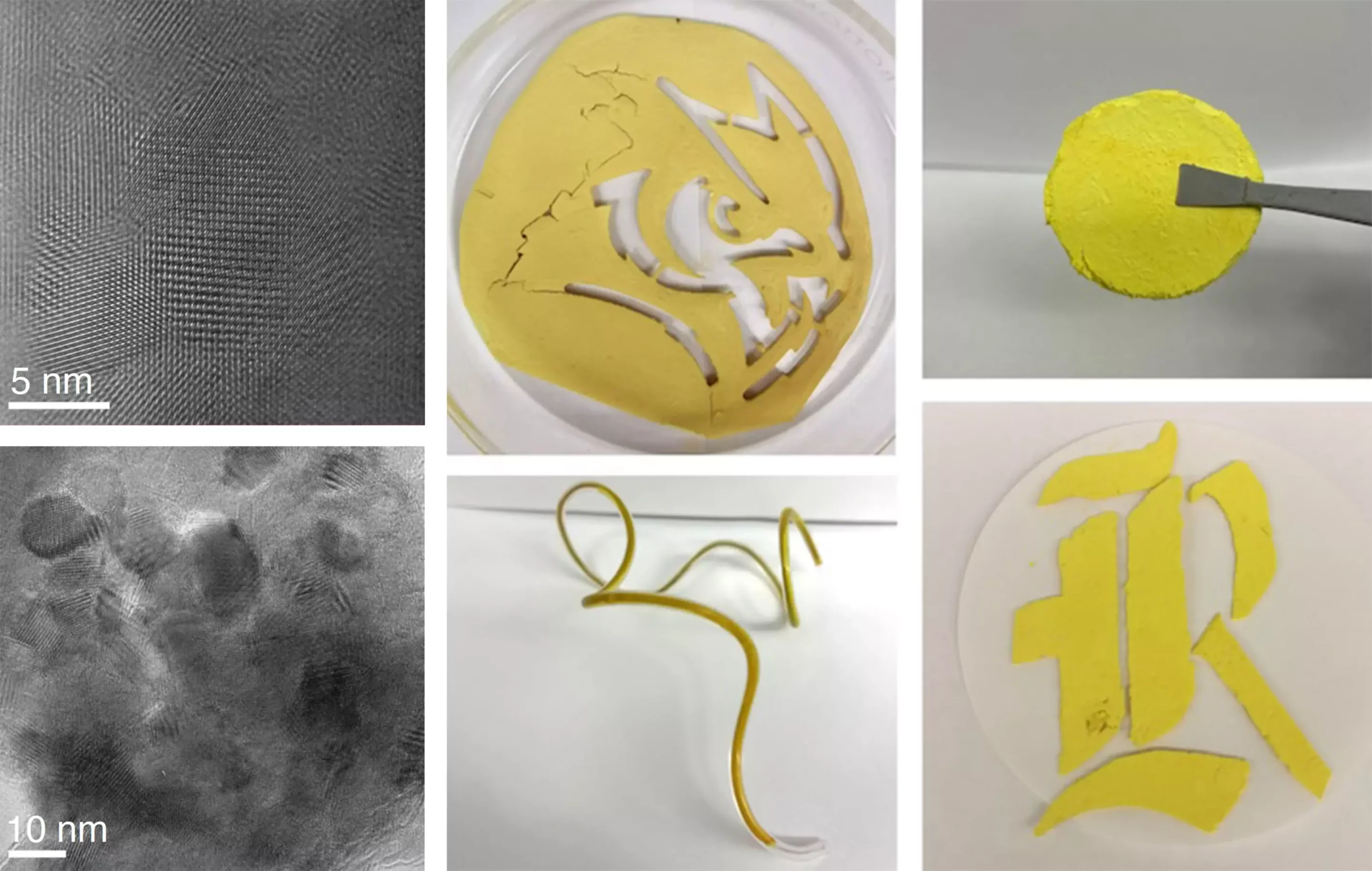Recent advancements in material science are paving the way for innovative solutions to pressing environmental challenges. One such development comes from engineers at Rice University, who have successfully optimized the synthesis of covalent organic frameworks (COFs). These specialized materials exhibit promising capabilities in gas capturing, water filtration, and enhancing chemical reactions, addressing critical issues such as energy storage and pollution mitigation. Among their numerous potential applications, COFs could play a vital role in tackling persistent environmental contaminants, namely per- and polyfluoroalkyl substances (PFAS), often referred to as “forever chemicals.”
The team, led by chemical engineer Rafael Verduzco, published groundbreaking research in the journal ACS Applied Materials and Interfaces, which is set to be highlighted on the journal’s front cover. This work elaborates on an innovative method to fabricate high-quality COFs economically and at a substantial throughput. The central feature of this new synthesis technique is the use of a multiflow microreactor, which allows for precise control over the input-output ratios during the COF formation process.
Safiya Khalil, a Rice doctoral alumna and first author of the study, likened this approach to a mini-factory setup within a laboratory framework. The continuous nature of the production process, where COF ingredients are combined and reacted in a steady stream, provides several advantages over traditional batch processing. This innovative practice not only enhances efficiency but also simplifies the production process.
One noteworthy aspect of the Rice team’s findings is the examination of COFs’ effectiveness in breaking down perfluorooctanoic acid (PFOA), a notorious PFAS compound. This substance, linked to numerous health risks, including cancer, poses significant challenges to environmental safety. The research demonstrated that COFs synthesized through the new method displayed superior efficacy in degrading PFOA, reinforcing the notion that COFs could be instrumental in developing technologies aimed at improving contaminant removal strategies.
Verduzco’s insights suggest a paradigm shift in how we can utilize COFs to create cleaner, more efficient systems for managing toxic pollutants. This shift could not only enhance our current capabilities in environmental remediation but also contribute to the overall public health agenda by reducing exposure to harmful substances.
Covalent organic frameworks are distinguished by their crystalline polymer nature, comprising small, repeating units organized into spongelike structures. The inherent porosity and expansive surface area of COFs offer the potential for a myriad of applications, ranging from drug delivery systems to advanced sensor technologies. Their tunable molecular designs mean they can be tailored for specific uses, providing a unique flexibility not present in many traditional materials.
However, the widespread adoption of COFs has been hindered by existing synthesis methods that are often painstakingly slow, cumbersome, and costly. The new approach developed by Rice engineers aims to eliminate these barriers and accelerate the discovery of novel COF formulations.
Khalil emphasized the advantages of the continuous flow synthesis method akin to baking cookies in small batches rather than preparing large quantities all at once. This comparison highlights the precision and temperature control achievable with the new method, ensuring optimal product quality with every production run. Unlike conventional synthesis, which often relies on high temperatures, high pressures, and toxic solvents, the new process results in a faster production time while enhancing the crystallinity of the COFs.
The prospect of significantly improving the synthesis of COFs through this innovative approach exemplifies a forward-thinking strategy towards material production. Furthermore, the ability to harness photocatalytic degradation under normal temperature conditions illustrates the practical utility of these COFs, which act as “sunlight engines” to expedite the breakdown of harmful chemicals.
The groundbreaking work by Rice University engineers marks a significant leap forward in the synthesis of covalent organic frameworks. As the research reveals, the integration of innovative flow techniques not only enhances production efficiency but also unlocks the potential for these materials to address some of the most pressing environmental challenges faced today. With applications reaching beyond simple material use to profound implications for public health, these advancements could usher in a new era of environmental sustainability and technological progress. The future of COFs promises not only to enhance existing methodologies but also to explore novel applications that could significantly improve our interaction with the environment.


Leave a Reply